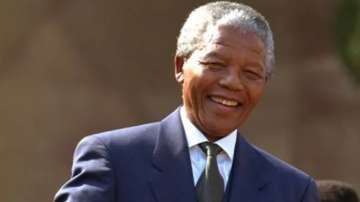As we observe International Nelson Mandela Day 2023 on July 18 i.e. today, it is important to remember the legacy of South Africa's first black president and his contributions to the country. To commemorate the day, we are sharing ten interesting facts about Nelson Mandela's life and his impact on South Africa.
- Nelson Mandela was born on July 18, 1918, in Mvezo, a small village in the Eastern Cape province of South Africa. His father, Gadla Henry Mphakanyiswa, was a chief of the Thembu people.
- He attended the University College of Fort Hare and the University of Witwatersrand, where he studied law. He also became actively involved in anti-apartheid politics during his time at the university.
- Mandela became a leader of the African National Congress (ANC) in the early 1950s and was instrumental in launching the Defiance Campaign against apartheid. He was arrested multiple times, including for inciting a strike in 1961 and treason in 1964.
- In 1964, he was sentenced to life imprisonment for sabotage and conspiracy to overthrow the government. He served 27 years, becoming an international icon of freedom during his incarceration.
- In 1990, he was released from prison after pressure from various international leaders and organisations such as Archbishop Desmond Tutu and Amnesty International.
- After being released from prison, Mandela negotiated a transition to a multiracial democracy in South Africa. He was elected President of South Africa in 1994 and served until 1999.
- As President, Mandela worked hard to bring racial reconciliation to South Africa. He created programs such as the Truth and Reconciliation Commission to promote forgiveness and healing between the different racial groups in South Africa.
- In 1993, Mandela received the Nobel Peace Prize for his efforts in bringing about reconciliation and democracy in South Africa.
- Despite leaving office, Mandela remained active in public life and was an advocate for human rights around the world. He also founded The Elders, an independent group of global leaders who use their collective experience and influence to address some of the world’s toughest problems.
- In 2009, Mandela's birthday (July 18) was declared International Nelson Mandela Day by the United Nations General Assembly to recognize his accomplishments and promote global peace and understanding.
- In 1992, Nelson Mandela had a cameo biopic in Spike Lee's biopic Malcolm X. He played the role of a teacher in the film.
- Apart from politics, he was into boxing. In his biography, he said, “I did not like the violence of boxing. I was more interested in the science of it - how you move your body to protect yourself, how you use a plan to attack and retreat, and how you pace yourself through a fight."
